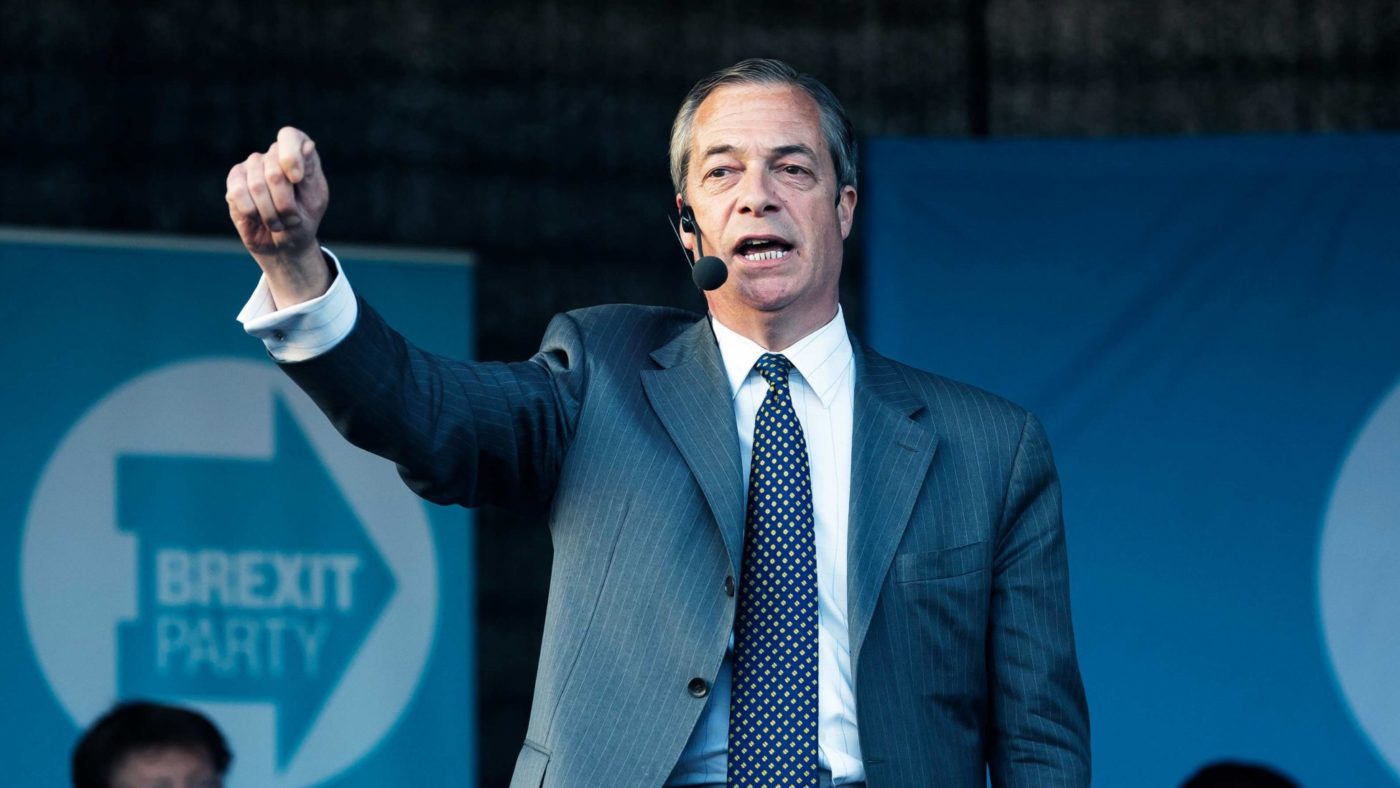In the summer of 2016, my then colleague Michael Mosbacher and I reported on and wrote a short book about the EU referendum campaign. It felt like we were documenting the dramatic final chapter of a long and complicated story.
Or, really, several stories. The story of Britain’s membership of the EU, and the story of the Eurosceptic movement: how anti-EU politics went from a fringe interest to 17.4 million votes for Brexit. It soon became obvious that there was at least one more chapter that would follow, dealing with the complicated question of exactly how Westminster gave effect to the country’s decision and disentangled Britain from the EU.
But at a Brexit Party rally in the West Midlands last night I realised — or at least began to fear — that those febrile few months in 2016, and the few years of political drama that they set in motion, might not have been the end of a huge story, but the start of something even bigger.
While Westminster has been busy worrying about backstops, Meaningful Votes and leadership challenges, Nigel Farage has refined his message and taken more than a few stylistic cues from the man he admires across the pond.
In the angry political pantomime I witnessed in Wolverhampton, complete with Trumpian derision of the media and call-and-response audience participation, the anti-establishment message had been distilled into something more potent than mainstream British politics has seen in living memory.
For Farage and his followers, the problem is incompetent civil servants, cowardly negotiators, lying politicians, broken promises and treacherous MPs. The enemy isn’t Brussels. It’s Westminster.
The biggest boos are not for Michel Barnier or Jean-Claude Juncker. They are for Tony Blair and Anna Soubry.
And the issue isn’t Brexit per se. It’s the collective failure of the British political class to make good on the Leave vote.
Even the few substantive Brexit issues that are raised – there is talk of a ‘WTO Brexit’ and no deal being better than a bad deal – are really about broken promises. In fact, it was striking how many of the conversations in the hall were laced with catchphrases coined by the Prime Minister these Brexiteers so revile.
The rise of the Brexit Party is a phenomenon that manages to be at once both completely astonishing and entirely unsurprising.
The astonishing bit is that a party that did not exist a month ago is on course to win next week’s European Elections. The margin of victory is likely to be healthy; a YouGov poll published today puts Farage’s movement 19 points clear of the pack, and a staggering 26 points ahead of the Conservatives. The party claim to have more than 100,000 supporters, each donating £25. That is a stratospheric rise without precedent.
The unsurprising bit is that Britain’s failure to leave the EU on time might annoy quite a few people.
The question now is whether the Brexit Party is merely a product of the strange Brexit twilight zone we find ourselves in, or the harbinger of a more permanent change.
Farage certainly hopes it is the latter. His new party’s slogan is “change politics for good” and, at the crescendo of his speech last night, he said:
“This is about far more, now, than just leaving the European Union. This is about the very democratic system in our country. It is about the bond of trust that needs to exist between the governors and the governed for our civilisation to carry on with the underpinning that it has. You see, democracy only works if the losers accept the result. But our political class haven’t accepted the result, and so our job now is far bigger, far more ambitious than just campaigning for Brexit. Our job now is to completely transform the political landscape in this country. To sweep aside a two-party system that now serves only itself.”
I suspect that we might look back on the morning of March 29, when voters woke up to find that the UK was still an EU member state, as the moment when British politics finally reached its elastic limit.
The polls certainly suggest that it was around then that things really soured.
Whether or not an increasingly broken looking system can be fixed is not clear.
But things will not return to the status quo ante. Reversing the result of the referendum, which a staggering number of MPs and commentators seem to think would solve our political problems, would not put the toothpaste back in the tube. Nor should those MPs who respect the 2016 result think that ‘sorting’ Brexit means all of this can go away. To state the obvious, no version of Brexit will satisfy everyone. And the UK’s relationship with Europe will remain fiercely debated long after we leave.
The question is how the country and its elected representatives go about handling the issue. Too many of those who despair at the rise of the Brexit Party and want to put a halt to the wave of anger Nigel Farage is riding, have spent the last three years pouring petrol on the flames.
At the end of last night’s rally, Farage was asked whether there is a risk that at the end of the current extension, Parliament decides to revoke Article 50. “If we were to finish up with a total betrayal on that level,” he said, “then the Brexit Party would win the next general election and reverse it.”
Prime Minister Farage might seem utterly implausible, but refusing to take the Brexit Party and its leader seriously is a dangerous thing to do.
And if you want to stop him in his tracks then an obvious first step would be to remove the kernel of truth at the heart of his powerful message of betrayal. In other words, putting a stop to the Brexit Party starts with Brexit.
CapX depends on the generosity of its readers. If you value what we do, please consider making a donation.


